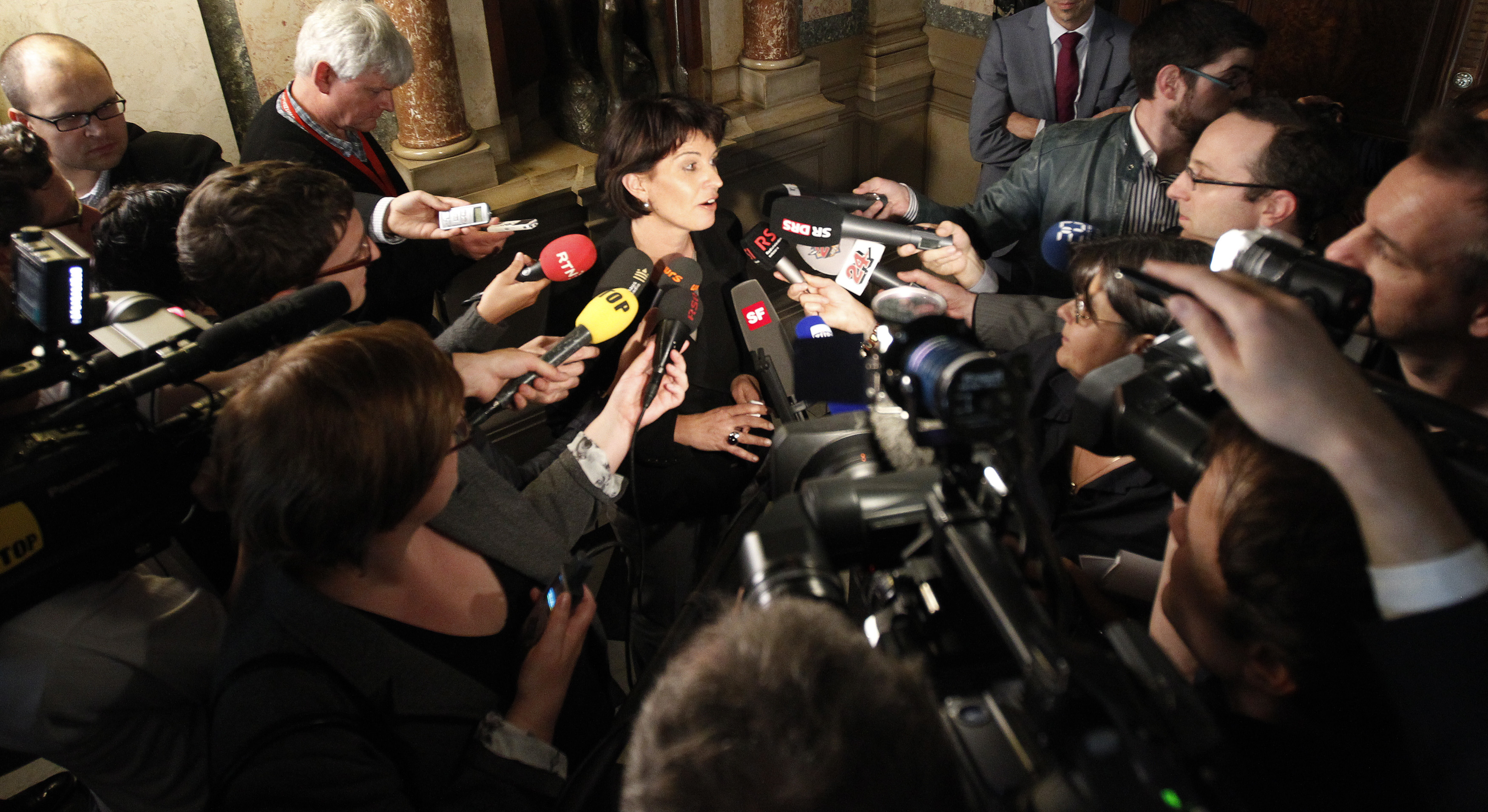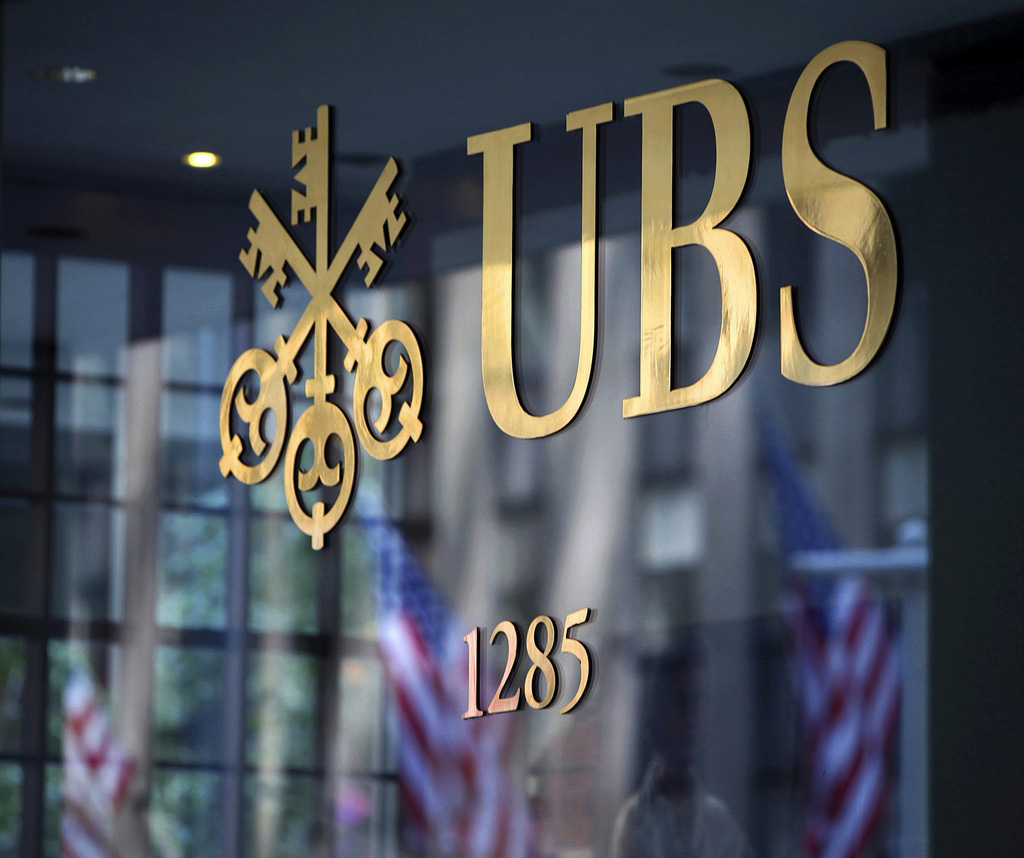Banks lobby for part in US financial reform

With financial reform underway in the United States, UBS and Credit Suisse are among the banks lobbying hardest to influences changes to the financial system.
The two Swiss banks have together spent nearly $3 million (SFr3.4 million) on lobbying so far this year alone.
Two years after the collapse of the financial sector, Congress and Senate are reconciling their versions of proposed reform, one of US President Barack Obama’s priorities.
A compromise text is expected to be adopted before July 4, America’s Independence Day, when it is hoped the reform will be signed by the president.
But despite popular discontent towards banks and the impending mid-term elections in November, the reform will not mean the American political establishment distancing itself from the financial community.
“This reform is just nibbling around the edges of the system,” Bill Allison, editorial director of Sunlight, a foundation aiming to improve transparency and good governance, told swissinfo.ch.
If the reform seems modest, that is in large part due to the close relationship between financial and political circles.
“It is difficult to be hard on someone you are taking money from,” said Allison, referring to White House and Congress officials.
In fact, banks are not skimping on their payments to the election campaigns of senators and congressmen and women best placed to shape the reform – or in hiring lobbyists to influence the views of elected representatives on reform.
Overall more than $138 million has been spent on such lobbying since the beginning of the year, according to the Center for Responsive Politics, a watchdog organisation keeping track of the financial relationship between lobbyists and government.
Budget increase
UBS and Credit Suisse are no exception. David Levinthal, a spokesman for the Center for Responsive Politics notes that the two Swiss banks have significantly increased their budget for networking with American political circles following the 2007 mortgage crisis, the financial crisis of 2008 and the advent of a Democratic Congress and White House more favourable to strengthening banking regulation than the Republican Party.
“We do not comment on our lobbying,” says Allison Chin-Leong, the spokeswoman for UBS in the US. The same “no comment” was given to questions concerning UBS’s position on the actual reform.
“No comment on our lobbying efforts,” reiterates Duncan King, US communications director at Credit Suisse. But he adds that “even if we expect the regulatory system in the US to change, we do not think these changes will have a concrete impact on our business”.
Swiss approval
For its part, the Swiss government is not surprised by the intensity of lobbying by UBS and Credit Suisse, an activity that, while legal, could seem incongruous in light of the scandals that have shaken the financial community and the bailout that taxpayers agreed on to revive the sector.
Michael Ambühl, who heads the newly created state secretariat for international financial and tax matters within the Swiss finance ministry, believes that it is “absolutely legitimate for banks to give their views and defend their interests with legislators, there is nothing wrong with that”.
But what is bad for democracy, in the eyes of Levinthal, is that “all this money buys access to the White House and members of Congress and the services of people who talk to the White House and lawmakers on behalf of these companies and who are very often personal friends of politicians”.
Successful lobbying
Little wonder, then, that the reform is not major. “Last year, the new consumer protection agency seemed very powerful, but it is no longer the case; banks were strongly opposed to the idea of creating this public body and they succeeded in weakening it,” Levinthal said. He explained by way of example that most derivatives are not regulated by the bill.
In fact, the success of the lobbying of the banks “is also measured by a yardstick of what isn’t included in the project” notes Allison.
“There is no measure like ‘Glass-Steagall’, a law that separated commercial banks from investment banks after the Great Depression and which was abolished in 1999, and so the demarcation line between commercial and investment banks will remain blurred.”
“It’s the abolition of Glass-Steagall that favoured the creation of these mammoths which are posing systemic risks to the economy,” says Allison.
Deterrence and prevention
In addition to restoring Glass-Steagall, the main ingredients for real reform could include deterrence and prevention.
“As a deterrent, Congress should triple the fines and make them mandatory and immediate for each violation of the law so that a bank violating the law by up to $100 million is punishable by a fine of $300 million,” suggested Bradley Birkenfeld, the whistleblower behind a tax fraud scandal at UBS who is now serving a jail term.
“On the prevention side, Congress should prohibit companies from contributing financially to political life, whether the banks are American or not.”
But there is no real chance of Congress and Senate including such ingredients for fundamental reform in their compromise text before they are signed off by Obama.
Marie-Christine Bonzom in Washington, swissinfo.ch
Since early 2010, Credit Suisse has given 51% of its political donations to Democratic friends of Barack Obama and 49% to Republican representatives.
UBS bet on the opposition Republicans, giving them 54% of their donations.
In the debate on reform, UBS and Credit Suisse funds will go especially to members of the Committee on Financial Services of the House and Senate Banking Committee, two organs that play a key role in drafting the text.
(Source: Center for Responsive Politics)
Wall Street is bracing itself for the most comprehensive series of reforms since the 1930s, following the financial crisis that erupted two years ago.
US President Barack Obama personally put his weight behind the reforms – that could come into force as early as July 4 this year – despite enormous opposition from the financial sector.
Last month the US Senate passed a bill that would force banks to take fewer risks with their own money, compel mortgage borrowers to prove that they could pay back their debts and give the Federal Reserve powers to take control of failing large firms.
The various financial watchdogs could be brought together to form a Council of Regulators”.
The derivatives market – a largely unregulated form of trading seen by many to have been at the heart of the crisis – would also face tougher restrictions.
The reforms, that have yet to be fully rubber stamped by legislators, could also give regulators a say on compensation practices.
A new consumer protection agency to clamp down on credit card and mortgage lending agencies could also be created when Obama signs the final version of the bill.
A separate bill along the same lines has already been passed by the House of Representatives.
Although both bills are very similar, they do contain some differences so the two legislative houses must now find a way to merge them – a process known as reconciliation.
Since January, Credit Suisse has invested more money in political life in Washington than any other non-US bank, with more than $2 million given as donations to election campaigns for the November elections and in lobbying Congress).
UBS is also very active, giving more than $700,000.
But in the top 100 companies most financially present in American political circles since 1989, UBS is ahead of Credit Suisse. In this ranking, UBS comes 51st, is the third non-US company, after two British companies and ahead of Credit Suisse (63rd).
(Source: Center for Responsive Politics)

In compliance with the JTI standards
More: SWI swissinfo.ch certified by the Journalism Trust Initiative













You can find an overview of ongoing debates with our journalists here . Please join us!
If you want to start a conversation about a topic raised in this article or want to report factual errors, email us at english@swissinfo.ch.